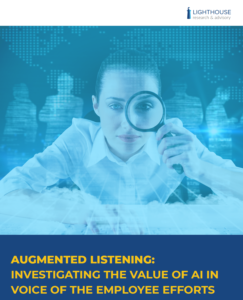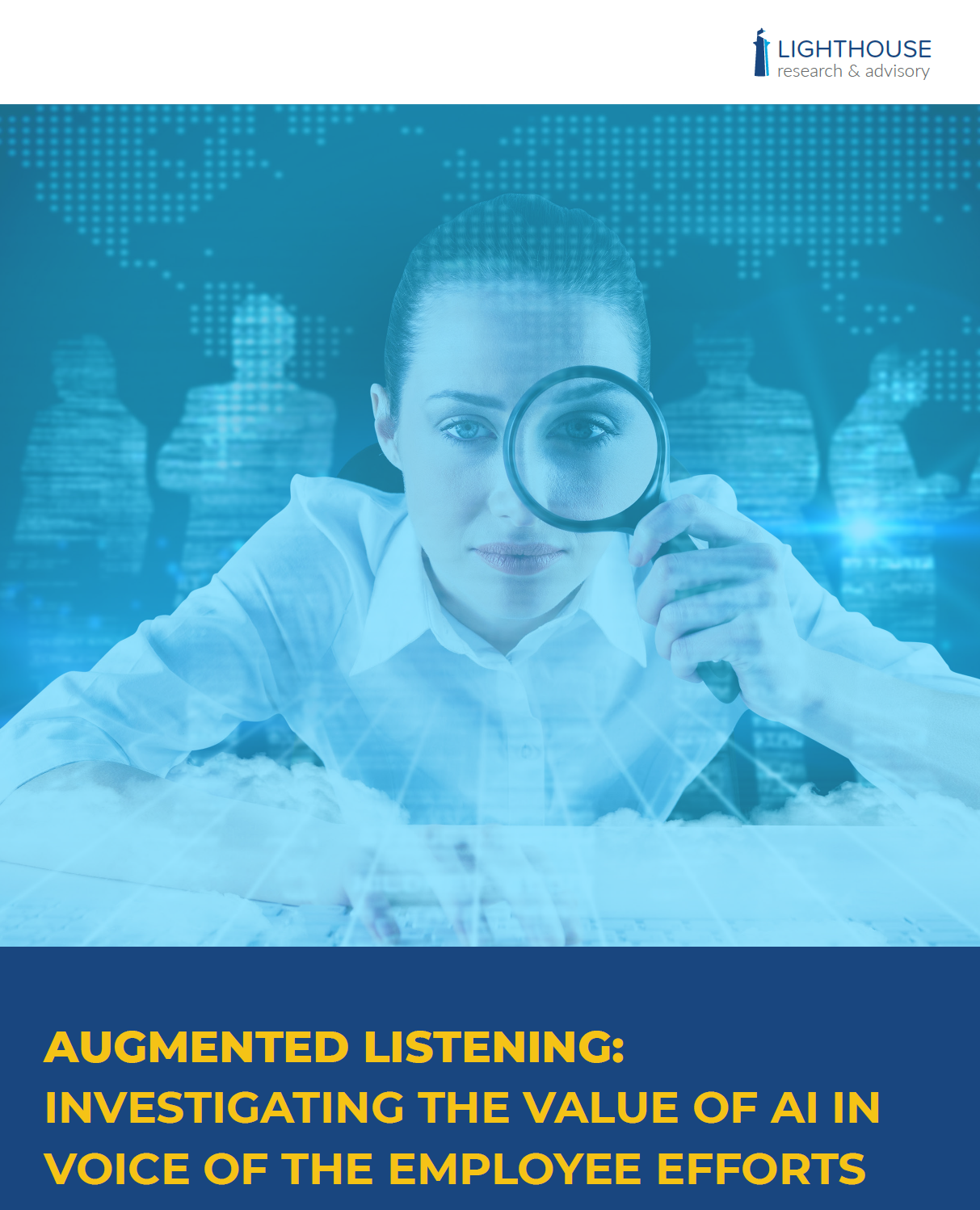In the past few years I have been digging very deep into AI and how it can help (and hurt) the employee experience. What I’ve been itching to do, however, is create an experiment that demonstrates just how powerful AI can be when paired with essential human skills in the workplace.
An Experimental Approach
 This year I had the opportunity to create an experiment to see how AI can help with employee survey, or voice of the employee, efforts. What I was curious to know is whether AI is better than humans at identifying trends, emotions, and other facets in an employee feedback dataset. Yes, I think about these things because I’m a researcher, but also because I’m highly practical.
This year I had the opportunity to create an experiment to see how AI can help with employee survey, or voice of the employee, efforts. What I was curious to know is whether AI is better than humans at identifying trends, emotions, and other facets in an employee feedback dataset. Yes, I think about these things because I’m a researcher, but also because I’m highly practical.
When I worked as an HR executive I simultaneously loved and hated when it came time for our annual employee engagement survey. I was excited to see how everyone felt, what their needs were, and how we were doing as an organization. I was terrified at the prospect of combing through mountains of data to make sense of it all, knowing that some people would be left out simply because we didn’t have the time to dig into every single facet of the responses.
What Can AI Do to Help?
Fast forward to today, and AI is being used across the business and across industries to help with everything from transportation to medicine. Surely there are applications within HR as a function of the business world (hint: I wrote about tons of these in the book). What role does it have in supporting these employee engagement surveys that are a core part of how we understand and support the workforce? Is it better than humans? If so, what does that mean for the work we need to be doing?\
That led to an experiment where we let humans and AI analyze some data and then we compared the results. It was pretty astounding, even for me.
The resulting research report (20+ pages) is chock full of details, including how we designed the experiment, what the results looked like, and what practical lessons employers need to consider both now and in the future.
Thank you to Ultimate Software for sponsoring this research and partnering with me on the analysis.

Ben Eubanks is the Chief Research Officer at Lighthouse Research & Advisory. He is an author, speaker, and researcher with a passion for telling stories and making complex topics easy to understand.
His latest book Talent Scarcity answers the question every business leader has asked in recent years: “Where are all the people, and how do we get them back to work?” It shares practical and strategic recruiting and retention ideas and case studies for every employer.
His first book, Artificial Intelligence for HR, is the world’s most-cited resource on AI applications for hiring, development, and employee experience.
Ben has more than 10 years of experience both as an HR/recruiting executive as well as a researcher on workplace topics. His work is practical, relevant, and valued by practitioners from F100 firms to SMB organizations across the globe.
He has spoken to tens of thousands of HR professionals across the globe and enjoys sharing about technology, talent practices, and more. His speaking credits include the SHRM Annual Conference, Seminarium International, PeopleMatters Dubai and India, and over 100 other notable events.

